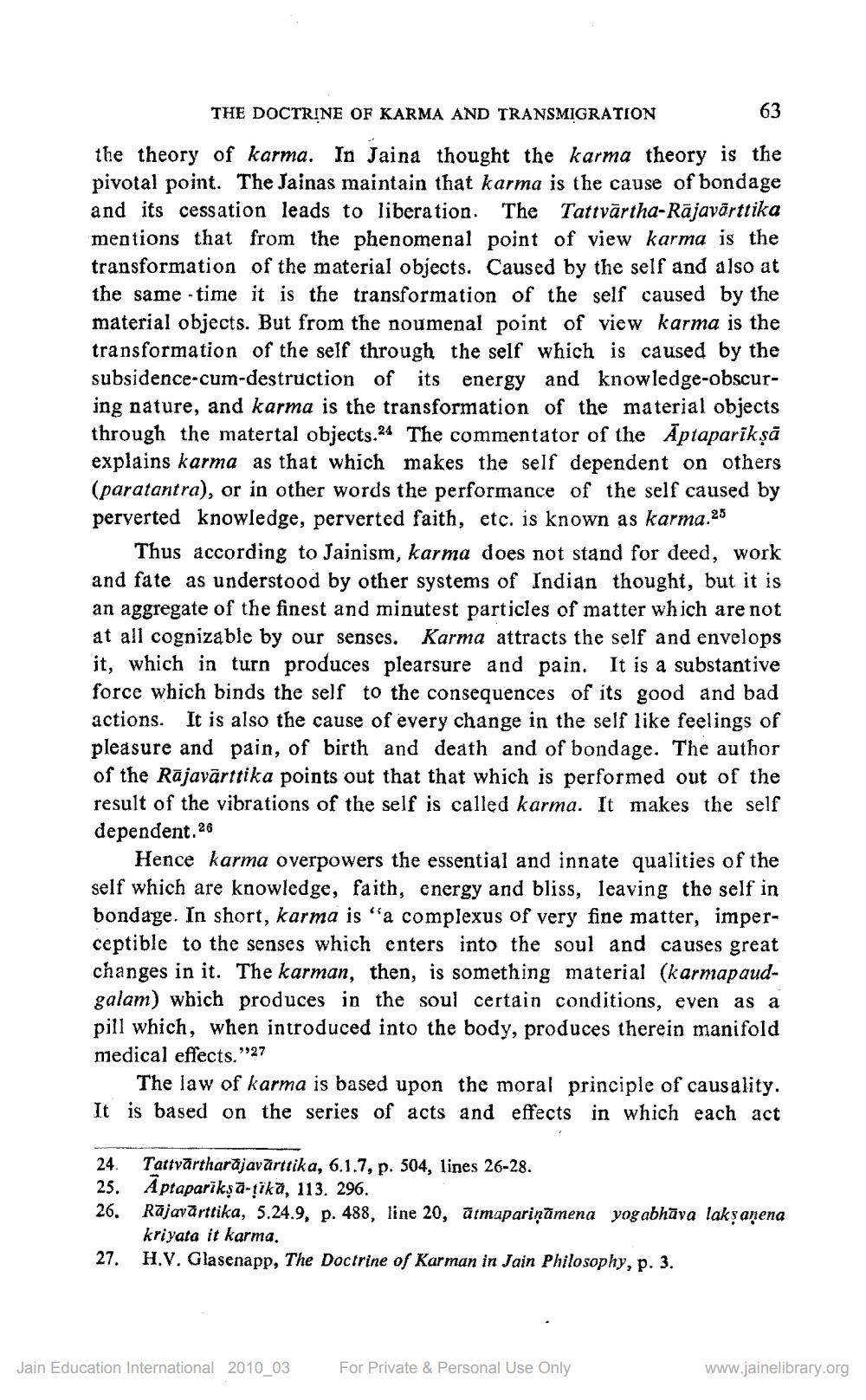________________
THE DOCTRINE OF KARMA AND TRANSMIGRATION
63
the theory of karma. In Jaina thought the karma theory is the pivotal point. The Jainas maintain that karma is the cause of bondage and its cessation leads to liberation. The Tattvārtha-Rājavörttika mentions that from the phenomenal point of view karma is the transformation of the material objects. Caused by the self and also at the same time it is the transformation of the self caused by the material objects. But from the noumenal point of view karma is the transformation of the self through the self which is caused by the subsidence-cum-destruction of its energy and knowledge-obscuring nature, and karma is the transformation of the material objects through the matertal objects.24 The commentator of the Aptaparikṣā explains karma as that which makes the self dependent on others (paratantra), or in other words the performance of the self caused by perverted knowledge, perverted faith, etc. is known as karma.25
Thus according to Jainism, karma does not stand for deed, work and fate as understood by other systems of Indian thought, but it is an aggregate of the finest and minutest particles of matter which are not at all cognizable by our senses. Karma attracts the self and envelops it, which in turn produces plearsure and pain. It is a substantive force which binds the self to the consequences of its good and bad actions. It is also the cause of every change in the self like feelings of pleasure and pain, of birth and death and of bondage. The author of the Rājavārttika points out that that which is performed out of the result of the vibrations of the self is called karma. It makes the self dependent. 26
Hence karma overpowers the essential and innate qualities of the self which are knowledge, faith, energy and bliss, leaving the self in bondage. In short, karma is a complexus of very fine matter, imperceptible to the senses which enters into the soul and causes great changes in it. The karman, then, is something material (karmapaudgalam) which produces in the soul certain conditions, even as a pill which, when introduced into the body, produces therein manifold medical effects."27
The law of karma is based upon the moral principle of causality. It is based on the series of acts and effects in which each act
24. 25. 26.
Tattvärtharajavarttika, 6.1.7, p. 504, lines 26-28. Aptapariksa-tika, 113. 296. Rõjavärttika, 5.24.9, p. 488, line 20, armapariņāmena yogabhāva lakşanena kriyata it karma. H.V. Glasenapp, The Doctrine of Karman in Jain Philosophy, p. 3.
27.
Jain Education International 2010_03
For Private & Personal Use Only
www.jainelibrary.org




